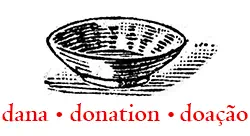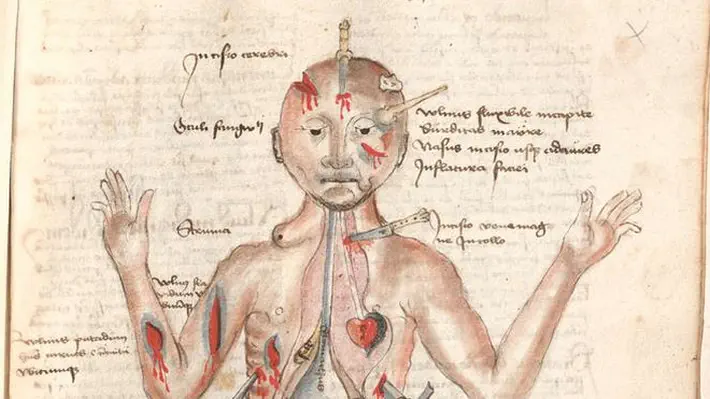 PUBLICDOMAINREVIEW
PUBLICDOMAINREVIEWThe Many Lives of the Medieval Wound Man
Sliced, stabbed, punctured, bleeding, harassed on all sides by various weaponry, the curious image of Wound Man is a rare yet intriguing presence in the world of medieval and early modern medical manuscripts.
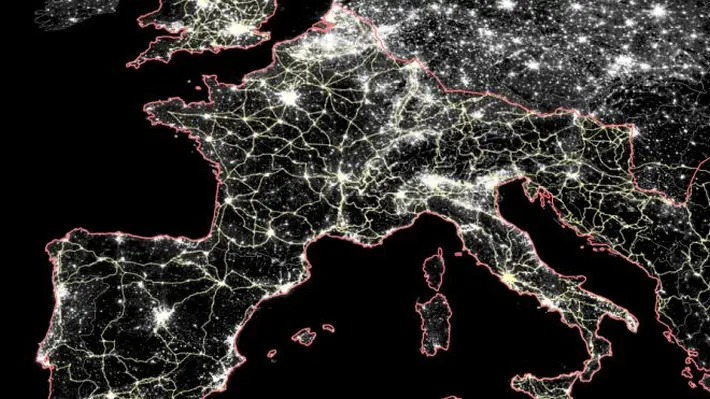 washingtonpost
washingtonpostHow 2,000-year-old roads predict modern-day prosperity
Prosperity begets prosperity: On a global level, economists and historians have shown that places that prospered 100, 500, even 1,000 years ago tend to be more economically developed today.
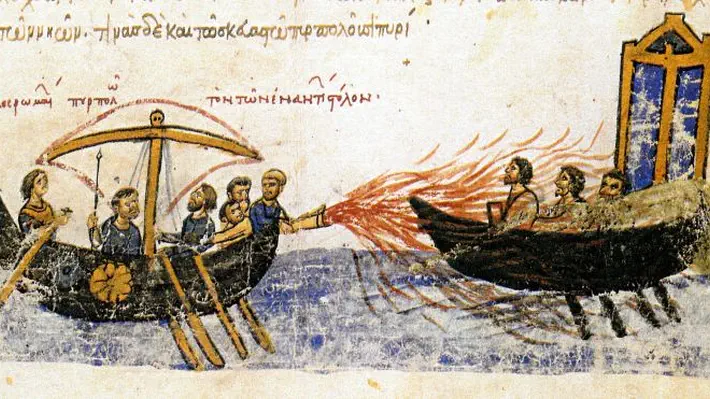 Wikipedia
WikipediaGreek fire
Greek fire was an incendiary weapon used by the Eastern Roman (Byzantine) Empire that was first developed c. 672. The Byzantines typically used it in naval battles to great effect, as it could continue burning while floating on water. It provided a technological advantage and was responsible for many key Byzantine military victories, most notably the salvation of Constantinople from two Arab sieges, thus securing the Empire's survival.
 THEVERGE
THEVERGENew archeological evidence pins down Buddha's date of birth
Archeologists investigating a site long believed to be the birthplace of Buddha have found new evidence to establish when the profoundly influential sage was born. The discovery marks the first time, researchers say, that any firm link has narrowed Buddha's date of birth to within a certain century.
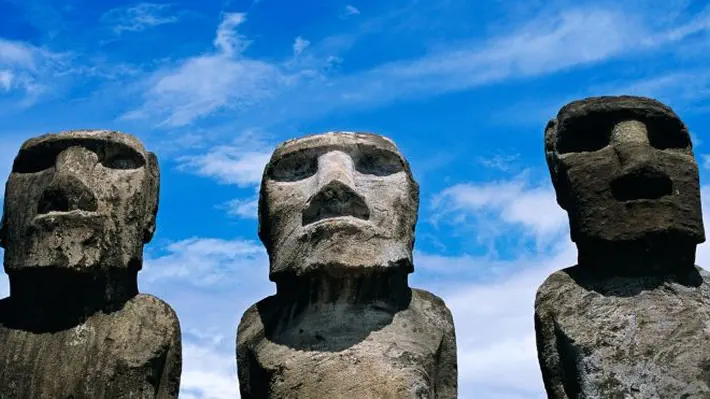 AEON
AEONWhat the idea of civilisational ‘collapse’ says about history
The idea that the Maya or Easter Islanders experienced an apocalyptic end makes for good television but bad archaeology.

Grupo de Whatasapp (apenas anúncios)
todo conteúdo, design e programação por Eduardo Pinheiro, 2003-2024
(exceto onde esteja explicitamente indicado de outra forma)


